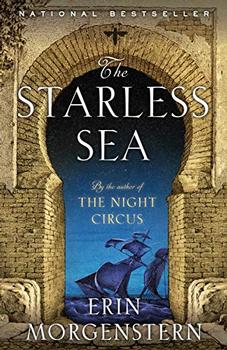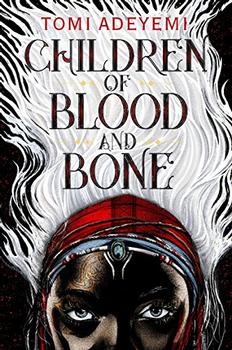Summary | Excerpt | Reviews | Beyond the book | Read-Alikes | Genres & Themes | Author Bio

The Book of Dust #1
by Philip PullmanVoted 2017 Best Young Adult Novel by BookBrowse's Subscribers
I wasn't quite sure what to expect when I heard that Philip Pullman would be revisiting the world he brought to life in the His Dark Materials series – not as a prequel or sequel series, but what he refers to as an "equel" – a series that is meant to stand on its own, yet as companion to the first. While I'm not sure if I agree that this is what he has achieved with the first installment of the new trilogy, I can say with certainty that La Belle Sauvage has left me excited for all that might come next in the series.
La Belle Sauvage is set in the same alternative universe as the earlier trilogy, and tells the story of how Lyra Belacqua - the protagonist in the first series - came to reside at Jordon College at Oxford University. While the beloved heroine is in the text, she is just a baby. It is the need to protect Lyra that drives the new young protagonists Malcolm Polstead and Alice Parslow on their epic journey from Godstow Priory to Oxford by canoe in a flood.
The book pulls from multiple literary styles: part spy novel, part bildungsroman, part adventure or quest tale, then, suddenly, glimpses of magical realism and embedded other-worlds. And while any one of these stylistic choices could have lent a very fascinating take on the narrative, there were places in which this mix of styles, combined with the detail paid to setting and sense of place, served to disrupt the pacing. As in the earlier series, the setting does help to draw the reader in, but here it is not seen through Lyra's eyes and is, instead, viewed from a wider, more distant lens, which made it distracting. So much detail is given that, at times, I felt my interest fading; it was less of a map leading me to the heart of the narrative and more like an inside conversation with those who know and love Oxford, leaving the rest of us who have never been there trying to keep apace with the conversation. The other drawback for me was that, at times, it felt like instead of letting the narrative lead him freely, Pullman was trying to tie up too many loose ends from the first series with regard to how Lyra, as a little girl, came to be living amongst the scholars.
That being said, this is a charming fantasy. Alice has quickly become one of my favorite characters ever written, and Pullman shows us again that he is a master of writing, not only for children, but for anyone. All readers who come to his books will find something for them. It is not a text that can be easily simplified to mean any one thing, and I am certain that those who come to this series first, and then look to read His Dark Materials, will have an utterly different experience. That is the mark of a good fantasy; it should be approachable for all, but not one-size-fits-all in what a reader might take from it. The narrative should provide us each with our own journey into our perceptions of the world. In a time of prescriptive fantasies, Pullman has once again given us an adventure that, for adults, appeals to the myriad complicated emotions we once had when we were young.
![]() This review was originally published in The BookBrowse Review in December 2017, and has been updated for the
July 2019 edition.
Click here to go to this issue.
This review was originally published in The BookBrowse Review in December 2017, and has been updated for the
July 2019 edition.
Click here to go to this issue.

If you liked La Belle Sauvage, try these:

by Erin Morgenstern
Published 2020
From the New York Times bestselling author of The Night Circus, a timeless love story set in a secret underground world - a place of pirates, painters, lovers, liars, and ships that sail upon a starless sea.

by Tomi Adeyemi
Published 2019
Winner of the 2018 BookBrowse Award for Best Young Adult Novel
Tomi Adeyemi conjures a stunning world of dark magic and danger in her West African-inspired fantasy debut, perfect for fans of Leigh Bardugo and Sabaa Tahir.
Flaming enthusiasm, backed up by horse sense and persistence, is the quality that most frequently makes for ...
Click Here to find out who said this, as well as discovering other famous literary quotes!
Your guide toexceptional books
BookBrowse seeks out and recommends the best in contemporary fiction and nonfiction—books that not only engage and entertain but also deepen our understanding of ourselves and the world around us.